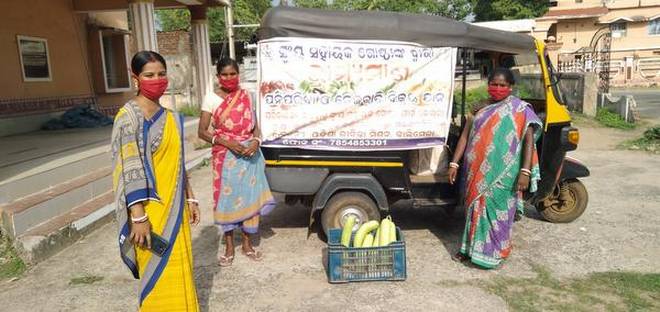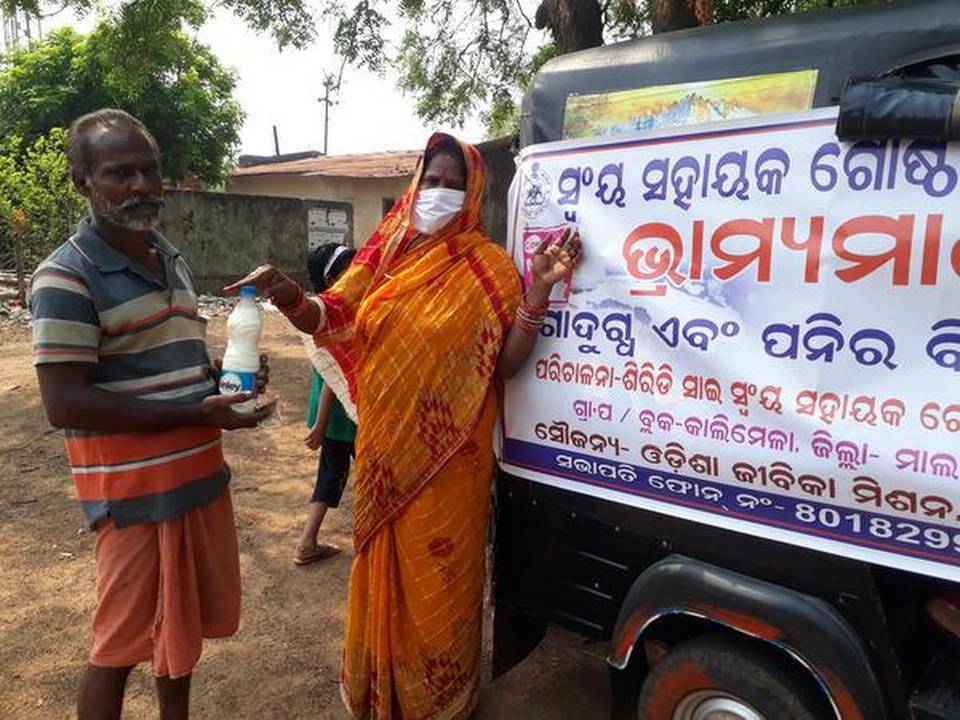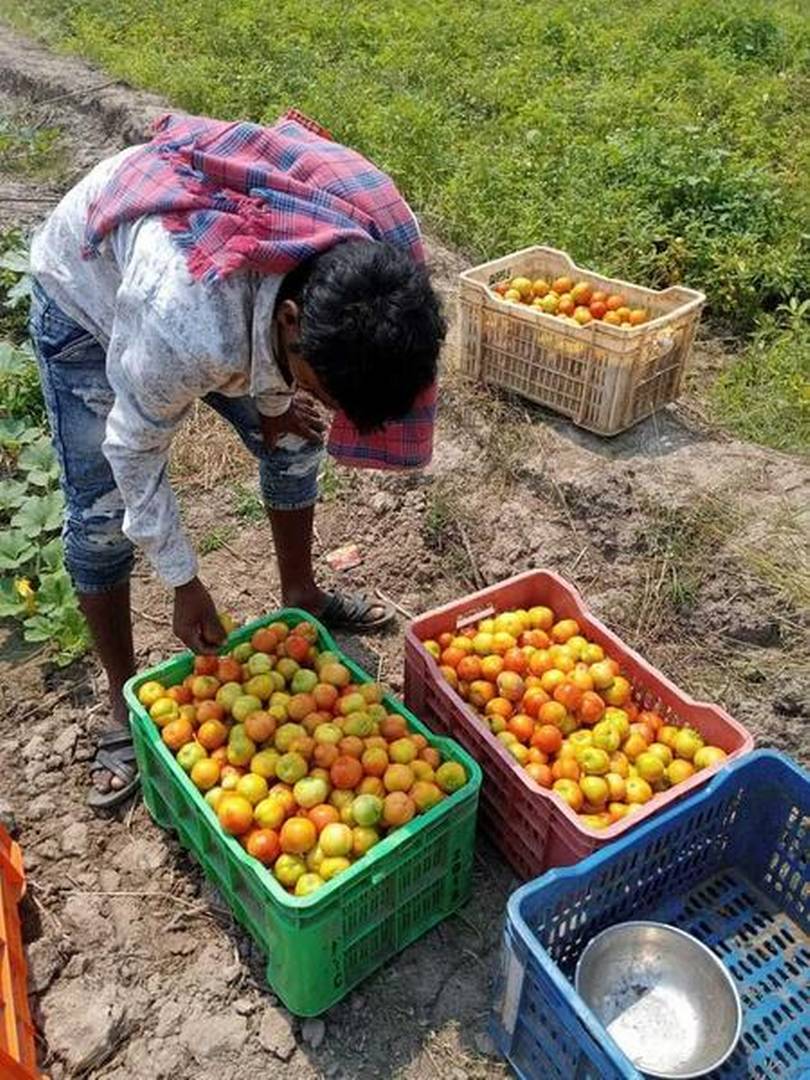
An unusual scene was unfolding in Kalimela block in Odisha’s Malkangiri district. Some farmers had let their cattle loose to feed on the fruits and vegetables that were growing abundantly in the well-tended fields. The truth is, they had little choice. With no hope of selling their produce, the farmers had decided to feed it to their cattle. In normal times, the produce would have been bought by local traders, who in turn would have transported it to cities like Vishakhapatnam in Andhra Pradesh or Raipur and Jagdalpur in Chhattisgarh. Or even as far as their own State’s capital, distant Bhubaneswar, 650 km from Kalimela. But there was a lockdown — demand had fallen and transport was scarce. Vegetable trading had ground to a halt.
Then the block administration hit upon an idea: ask self-help groups (SHGs) to procure the farm produce and sell it to local consumers. The idea clicked. With markets mostly closed and with movement restrictions, people were having a hard time buying vegetables and other necessities.
SHG to SHG
The past few years have seen the formation of several SHGs in Odisha, supported by the government and NGOs, the idea being to empower rural women and help them ensure a basic income for their families. And so, in the first week of April, the administration asked some of these SHGs to team up for their plan in Kalimela. They agreed and soon developed a system of division of labour. First, members of the Odisha Livelihood Mission would identify farmers and their produce; then a few SHGs would buy the fruits and vegetables and sell it to a second set of SHGs. The latter would then take it to the villagers for doorstep sales.
In short, it was an ‘SHG to SHG’ model, similar to the ‘business to business’ models popular in urban areas. “The model worked quite well,” says Roslin Das, who works with Odisha Livelihood Mission. She explains the rationale: “Some SHGs were able to buy the fruits and vegetables from farmers, but for transporting them to people’s doorsteps, we co-opted SHGs whose members either had an autorickshaw or could arrange one. Such division of work made the process smooth.”
Smooth running
The vegetables they sold included brinjal, tomato, bitter ground, cucumber, ladies’ fingers, chilli, sweet corn and pumpkin, besides fruits like banana and watermelon. Some 17 SHGs were involved in the procurement work, while 69 worked with doorstep deliveries.
Apart from selling the produce to other villagers, they also delivered it to the free kitchens run by the government to feed the destitute and the elderly during the lockdown.
These vegetables also reached the Panchayat-level quarantine centres that soon came up. While the block authorities co-ordinated with different agencies to ensure the process ran smoothly, the government provided initial low-interest loans in the range of ₹50,000 to ₹1 lakh to those SHGs that needed it. The cash reached the women through mobile banking.
The scheme soon became so popular that not only were mobile numbers painted on the backs of the autorickshaws for call-and-deliver services, but the women also started picking up and delivering fish and milk, with battery-operated refrigerators installed in these rickshaws.

A mobile van of Siridi Sai SHG selling milk and paneer. | Photo Credit: Sandhya Baisnab
Common good
Champa Kisani has studied till Class X. She belongs to the Biswa Maa Laxmi SHG in Potakhal village. “The vegetables were rotting. We bought them from the farmers and sold them at a small profit to other SHGs. We earned ₹500-700 a day,” says Kisani. This money has now been invested in fish farming and a kitchen farm.
Pratima Harijan, 38, a tribal woman from Madhu Babu SHG, can barely sign her name but she says that she and her friends “ferried the autorickshaws and sold the vegetables to people at their doorsteps.” The small ₹500-1,000 earnings they made per day helped them meet their household expenses during the lockdown. Everyone benefited. Farmers could sell their produce, the village women made a modest profit, and consumers got vegetables delivered at their doorsteps.

Biswajit Biswas, a farmer, with his produce for the SHG. | Photo Credit: Sandhya Baisnab
The scheme was soon taken up by all the blocks in Malkangiri district. This, in turn, brought in climate-related benefits — produce was no longer hauled hundreds of kilometres in vehicles burning gallons of fuel. A new model had emerged as the best community-level solution during these difficult times.
Now, as the lockdown is relaxed and things gradually limp back to normal, in Kalimela some seven or eight rickshaws still operate, showing the sustainability of the model. Both demand and supply might last for the long term.
First published by The Hindu on 8 Aug. 2020